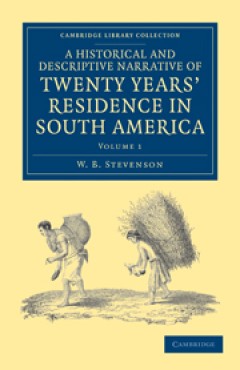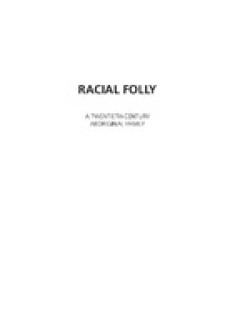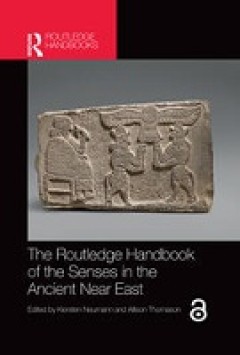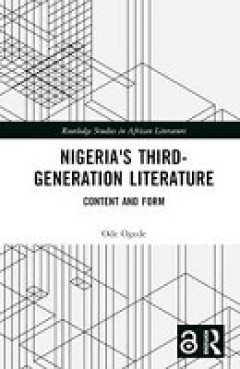Filter by

A Historical and Descriptive Narrative of Twenty Years' Residence in South Am…
In 1804 when W. B. Stevenson (fl. 1803–25) arrived on the small island of Mocha, just off the coast of South America, he stepped onto a continent on the brink of mass revolution. Over the next twenty years, he had an extraordinary range of experiences: as a traveller, a Spanish government official, a prisoner, and as secretary to an ex-Royal Navy admiral turned revolutionary. In this three-vo…
- Edition
- -
- ISBN/ISSN
- 9781139060585
- Collation
- -
- Series Title
- -
- Call Number
- -

Asian Literary Voices: From Marginal to Mainstream
Brings together some of the most exciting recent scholarship on Asian literature and culture, emphasising East Asia yet extending to South Asia Combines original findings of interest to specialists with a clear style of writing and argumentation that makes the volume accessible and appealing to the general reader Brings to life a wide range of Asian literary and scholarly figures important in t…
- Edition
- Ed. 1
- ISBN/ISSN
- 9789089640925
- Collation
- 176
- Series Title
- ICAS Publications Series
- Call Number
- 700 ASI a

William Rimmer: Champion of Imagination in American Art
William Rimmer (1816–1879) is arguably the first modernist American sculptor, although his inventive originality has not been fully acknowledged. Rimmer cultivated an art of ideas and personal expression whilst supporting himself as a physician and, later, as a teacher of art anatomy at the Cooper Union School of Design for Women in New York. Unlike his contemporaries, he advocated the creati…
- Edition
- Ed. 1
- ISBN/ISSN
- 9781800647565, 9781800647572
- Collation
- 250
- Series Title
- -
- Call Number
- 750 EVA w

Racial Folly: A Twentieth-Centrury Aboriginal Family
Briscoe’s grandmother remembered stories about the first white men coming to the Northern Territory. This extraordinary memoir shows us the history of an Aboriginal family who lived under the race laws, practices and policies of Australia in the twentieth century. It tells the story of a people trapped in ideological folly spawned to solve ‘the half-caste problem’. It gives life to those …
- Edition
- Ed. 1
- ISBN/ISSN
- 9781921666216
- Collation
- 226
- Series Title
- Aboriginal History Monograph, 20
- Call Number
- 927 BRI r

Mining and Communities in Northern Canada: History, Politics, and Memory
For indigenous communities throughout the globe, mining has been a historical forerunner of colonialism, introducing new, and often disruptive, settlement patterns and economic arrangements. Although indigenous communities may benefit from and adapt to the wage labour and training opportunities provided by new mining operations, they are also often left to navigate the complicated process of re…
- Edition
- -
- ISBN/ISSN
- 9781552388051
- Collation
- -
- Series Title
- -
- Call Number
- -

The Routledge Handbook of the Senses in the Ancient Near East
This chapter surveys and analyses the aromatic substances associated with burial and the preservation of the dead in the Iron Age Phoenician Levant (c. 1100–300 BCE), as part of an exploration of the lost smellscapes of the ancient world. First, Phoenician vocabulary related to smelling and pungent substances is outlined and investigated. Then, a review of coastal Levantine archaeological and…
- Edition
- -
- ISBN/ISSN
- 9780429280207
- Collation
- -
- Series Title
- -
- Call Number
- -

Nigeria's Third-Generation Literature: Content and form
This book considers the evolution and characteristics of Nigeria’s third-generation literature, which emerged between the late 1980s and the early 1990s and is marked by expressive modes and concerns distinctly different from those of the preceding era. The creative writing of this period reflects new sensibilities and anxieties about Nigeria’s changing fortunes in the post-colonial era. Th…
- Edition
- Ed. 1
- ISBN/ISSN
- 9781032268422, 9781032268439
- Collation
- -
- Series Title
- -
- Call Number
- 909 OGE n

Uncovering Pacific Pasts: Histories of Archaeology in Oceania
Objects have many stories to tell. The stories of their makers and their uses. Stories of exchange, acquisition, display and interpretation. This book is a collection of essays highlighting some of the collections, and their object biographies, that were displayed in the Uncovering Pacific Pasts: Histories of Archaeology in Oceania (UPP) exhibition. The exhibition, which opened on 1 March 2020,…
- Edition
- Ed. 1
- ISBN/ISSN
- 9781760464875, 9781760464868
- Collation
- 614
- Series Title
- -
- Call Number
- 930.1 UNC u

Fugitive Borders: Black Canadian Cross-Border Literature at Mid-Nineteenth Ce…
Fugitive Borders explores a new archive of 19th-century autobiographical writing by black authors in North America. For that purpose, Nele Sawallisch examines four different texts written by formerly enslaved men in the 1850s that emerged in or around the historical region of Canada West (now known as Ontario) and that defy the genre conventions of the classic slave narrative. Instead, these te…
- Edition
- -
- ISBN/ISSN
- 9783839445020
- Collation
- -
- Series Title
- -
- Call Number
- -

The Battle of Vouillé, 507 CE: Where France Began
This volume highlights the heretofore largely neglected Battle of Vouillè in 507 CE, when the Frankish King Clovis defeated Alaric II, the King of the Visigoths. Clovis` victory proved a crucial step in the expulsion of the Visigoths from Francia into Spain, thereby leaving Gaul largely to the Franks. It was arguably in the wake of Vouillè that Gaul became Francia, and that "France began." Th…
- Edition
- -
- ISBN/ISSN
- 9781614510994
- Collation
- -
- Series Title
- -
- Call Number
- -
 Computer Science, Information & General Works
Computer Science, Information & General Works  Philosophy & Psychology
Philosophy & Psychology  Religion
Religion  Social Sciences
Social Sciences  Language
Language  Pure Science
Pure Science  Applied Sciences
Applied Sciences  Art & Recreation
Art & Recreation  Literature
Literature  History & Geography
History & Geography